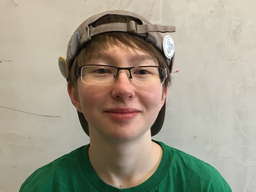PhD Proposal: Gracie Chaney
Location
Off Campus : via WebEx
Date & Time
October 26, 2020, 3:00 pm – 5:00 pm
Description
ADVISOR: Dr. Can Ataca
TITLE: Simulating Li-ion Batteries and Beyond: Developing Electrode Materials for Next-Generation Batteries
ABSTRACT: In order to curve the environmental impact of fossil fuels, many countries have turned to ”cleaner” energy sources and storage devices. One hope is that next-generation batteries may completely revolutionize energy storage. For instance, much research has been done concerning replacing the internal-combustion engine of automobiles with electric power-trains. Electrodes and the materials they are composed of are fundamental to how well a battery functions. Various bulk and two-dimensional (2D) materials and their interactions with adsorbents and electrolytes have been studied. To guide experimentalists, theorists run quantum mechanical simulations to test the stability, electronic structures, and diffusion on such materials. One of the most popular methods is density functional theory (DFT), an approximate method that is usually accurate and computationally efficient. For more exact answers, one can use more advanced methods such as quantum monte carlo (QMC). In this work, we explain our previous work using DFT to study anode materials for li-ion batteries. In particular, we studied ion absorption and diffusion on 2D regular and Janus transition metal dichalcogenides as well as on MXenes. We propose new research using QMC to study cathode materials and discharge products of metal-air batteries.
Proposal will be held using WebEx.
TITLE: Simulating Li-ion Batteries and Beyond: Developing Electrode Materials for Next-Generation Batteries
ABSTRACT: In order to curve the environmental impact of fossil fuels, many countries have turned to ”cleaner” energy sources and storage devices. One hope is that next-generation batteries may completely revolutionize energy storage. For instance, much research has been done concerning replacing the internal-combustion engine of automobiles with electric power-trains. Electrodes and the materials they are composed of are fundamental to how well a battery functions. Various bulk and two-dimensional (2D) materials and their interactions with adsorbents and electrolytes have been studied. To guide experimentalists, theorists run quantum mechanical simulations to test the stability, electronic structures, and diffusion on such materials. One of the most popular methods is density functional theory (DFT), an approximate method that is usually accurate and computationally efficient. For more exact answers, one can use more advanced methods such as quantum monte carlo (QMC). In this work, we explain our previous work using DFT to study anode materials for li-ion batteries. In particular, we studied ion absorption and diffusion on 2D regular and Janus transition metal dichalcogenides as well as on MXenes. We propose new research using QMC to study cathode materials and discharge products of metal-air batteries.
Proposal will be held using WebEx.
